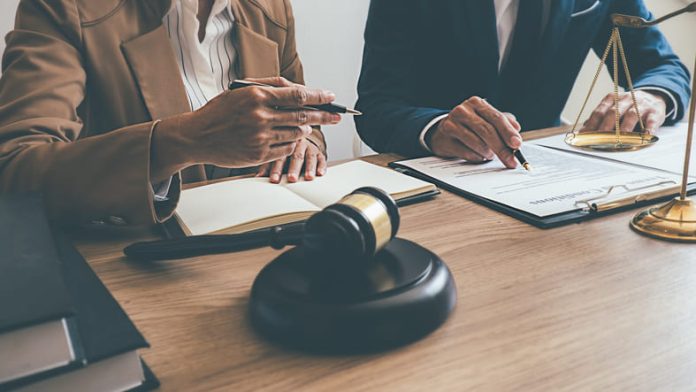Accidents and injuries can happen unexpectedly, turning life upside down in mere seconds. Understanding the proper steps to take after an injury helps protect both health and legal rights. Whether dealing with a workplace incident, car accident, or slip-and-fall, knowing these steps beforehand proves invaluable during stressful situations.
This blog post explores essential actions, common pitfalls to avoid, and crucial timelines that could impact potential compensation.
Immediate Steps After an Injury
Nobody plans to get injured, but those first few hours after the accident are critical. Stay as calm as possible and try to write down every detail about what happened while it’s still fresh in your mind. Taking photos and collecting contact information from witnesses might feel like a hassle at the moment, but you’ll be thankful you did later when these details could become crucial to your case.
Living in Hampton Roads comes with its own set of challenges after an injury, especially because the roads are busy and accidents are more common than you’d think. That’s why many people in the area reach out to a virginia beach personal injury lawyer to guide them through the next steps, helping them navigate the process while they focus on recovery. With the right legal assistance, you can ensure that your rights are protected, allowing you to concentrate on healing without worrying about legal complexities or financial burdens.
Seeking Medical Attention
Getting medical help immediately becomes important when you experience any level of soreness despite how you think it is. Body injuries can develop worsened complications in the long term when healthcare remains postponed. Receiving medical care early indicates to medical personnel you care about your health while creating an official document with injury records that will help if you need to file a claim.
The chosen treatment for recovery needs you to strictly follow your doctor’s medical advice. Getting medical help immediately since those actions might reduce the strength of your legal position.
Documenting the Incident
Here’s a checklist of things to document and save during this process:
- Write down the full details of the accident – the time, place, weather conditions, and anything else that could be important.
- Take clear, detailed photos – of your injuries, property damage, and the surrounding area where the accident occurred.
- Ask anyone who witnessed the accident to write down their account and gather their contact information.
Communication with Insurance Companies
When insurance companies call (and they will), they may sound friendly, but remember – their main goal is to pay as little as possible. What might seem like a casual conversation could have long-term consequences, so it’s crucial to be cautious about what you say.
Think carefully before sharing your story with insurance representatives without seeking advice first. They are experts in handling claims and know exactly what questions to ask in a way that can benefit their company, not necessarily you. Speaking with a lawyer first can help you avoid making statements that could hurt your case later.
Understanding Legal Rights and Timelines
Each U.S. state maintains its individual protocols for injury claims processing, similarly as sports organize their own unique competitive regulations. Delaying legal action will lead to complete loss of your right to file a complaint despite possessing solid evidence to support your claim.
The legal deadline begins right away from the injury moment, so any delay in filing affects your options. One must take immediate steps to address the situation. Seeking guidance from a Virginia Beach personal injury lawyer right after your injury enables you to learn your rights and receive proper case management until your case concludes.
Comparison of Documentation Requirements
| Type of Evidence | Purpose | Timing |
| Medical Records | Prove injury extent | Immediate |
| Accident Photos | Show scene conditions | Within 24 hours |
| Witness Statements | Verify accident details | Within 48 hours |
| Police Reports | Official documentation | 3-5 business days |
Long-term Considerations
Among all other considerations, recovery from an injury requires assessing beyond the initial several weeks. After an expected recovery time, doctors have determined a specific injury might need prolonged healing, which requires patients to arrange more doctor appointments and potential alterations to their activities.
Professional help for analyzing future medical costs gives you a comparison to the way a journey map guides your trip. Your financial preparedness extends beyond the first-stages of treatment because this planning system enables recovery without stress about monetary problems.
Dealing with Work and School
Missing work or school is especially stressful when you’re injured. Employers and teachers will typically need doctor’s notes to explain why you’re absent, and securing these documents is more important than it may seem at first.
Both schools and workplaces often have special programs or accommodations for people who are injured. The sooner you notify them about your situation, the easier it will be to work out a plan that supports your recovery while you keep up with your responsibilities.
Handling Medical Bills
Hospital bills can start adding up quickly, especially if you’re dealing with long-term treatment. Many hospitals and medical providers are willing to work with you on payment plans if you’re struggling to cover the costs, so keeping track of every bill is vital.
Some doctors may hesitate to treat accident victims if they don’t have the funds upfront. In these situations, a lawyer can help connect you with medical providers who are willing to treat you now and wait for payment until your case is settled – essentially putting the bills on hold until your settlement comes through.
Getting Back to Normal Activities
Taking it slow as you return to your normal activities is extremely important. Your doctor will provide guidelines on what’s safe to do and when just like a coach would guide you back into sports after an injury. Rushing back too soon could delay your recovery or even make things worse.
While your friends and family may want to help, they might not know how to best assist you. Creating a simple schedule of when you need rides or help with everyday tasks can make things easier for both you and your loved ones.
Transportation Challenges
When you’re injured, getting around can be tricky. If you’re unable to drive, public transportation, ride-sharing apps, or even specific services for doctor appointments can help you get where you need to go. Some cities, including Virginia Beach, have special transportation services designed for medical visits, which can be especially useful during your recovery.
Your insurance may also cover transportation costs while you’re healing, so it’s worth checking what options are available. Family members often help, but it’s a good idea to have a backup plan in place to ensure you don’t miss important appointments.
Managing Daily Tasks
Even small tasks like making breakfast or doing laundry can feel overwhelming when you’re hurt. Breaking big chores down into smaller, manageable tasks can make them feel less daunting, much like tackling a big project one step at a time.
Many stores now offer home delivery services for groceries, which can be incredibly helpful during your recovery. Additionally, some community programs may offer assistance with housework or meal preparation, allowing you to focus on your healing process.
Conclusion
What you do immediately after getting hurt plays a critical role in both your recovery and ensuring you have the necessary support for medical expenses. Following these steps is like following a recipe – each step is important to ensure the best outcome.
By documenting everything, attending medical appointments, and understanding your legal rights, you can better navigate the challenges ahead. Though it may seem overwhelming at first, taking it one step at a time makes the process more manageable. If you’re in Virginia Beach or nearby, reaching out to a personal injury lawyer early can ensure that you’re well-protected and informed throughout your recovery.
Frequently Asked Questions
How long do injury victims have to file a legal claim?
Injury victims typically have between 1-6 years to file a legal claim, depending on their state’s statute of limitations and the type of injury involved. It’s crucial to consult with an attorney as soon as possible after an injury, as waiting too long could permanently bar you from seeking compensation.
What medical documentation matters most for injury cases?
Medical documentation that establishes a clear connection between the accident and your injuries, along with detailed treatment records showing the severity and ongoing nature of your condition, matters most for injury cases. Records from immediately after the incident (emergency room visits, initial diagnoses) combined with follow-up care documentation provide the strongest foundation for demonstrating both causation and the extent of damages.
Should statements be given to insurance companies without legal counsel?
Statements should not be given to insurance companies without legal counsel present, as insurance adjusters are trained to elicit responses that can minimize your claim or shift liability. Having an attorney review or handle all communications with insurers protects your rights and ensures that your statements won’t be misinterpreted or used against you later in the claims process.


































